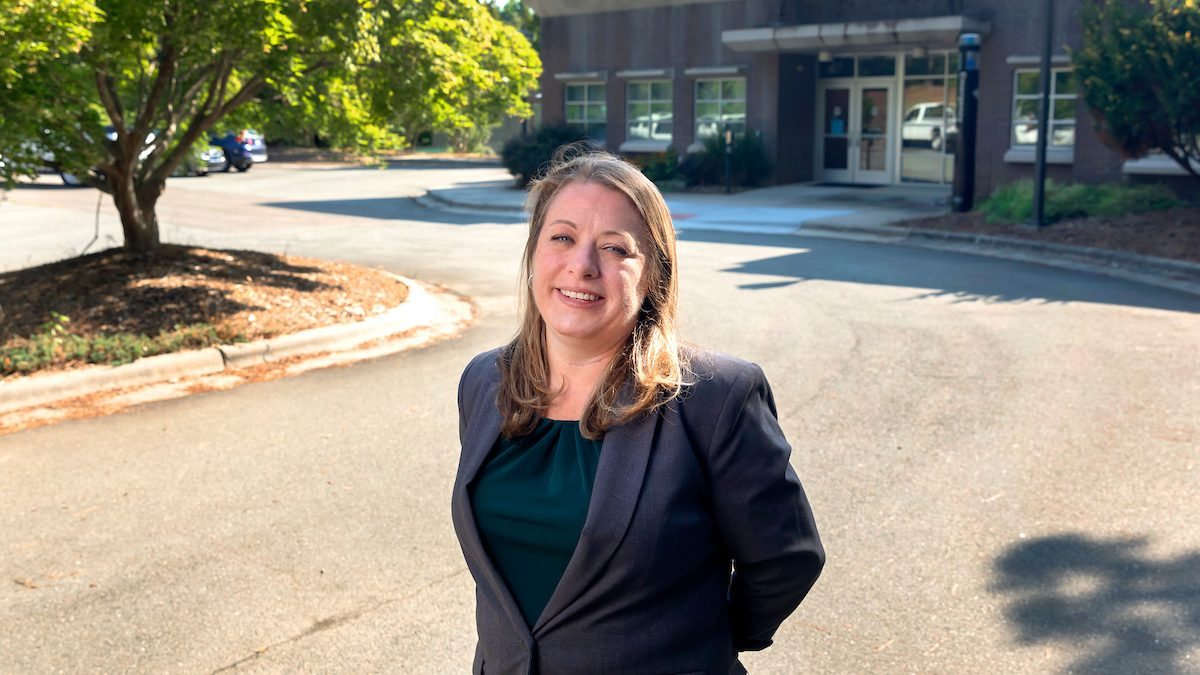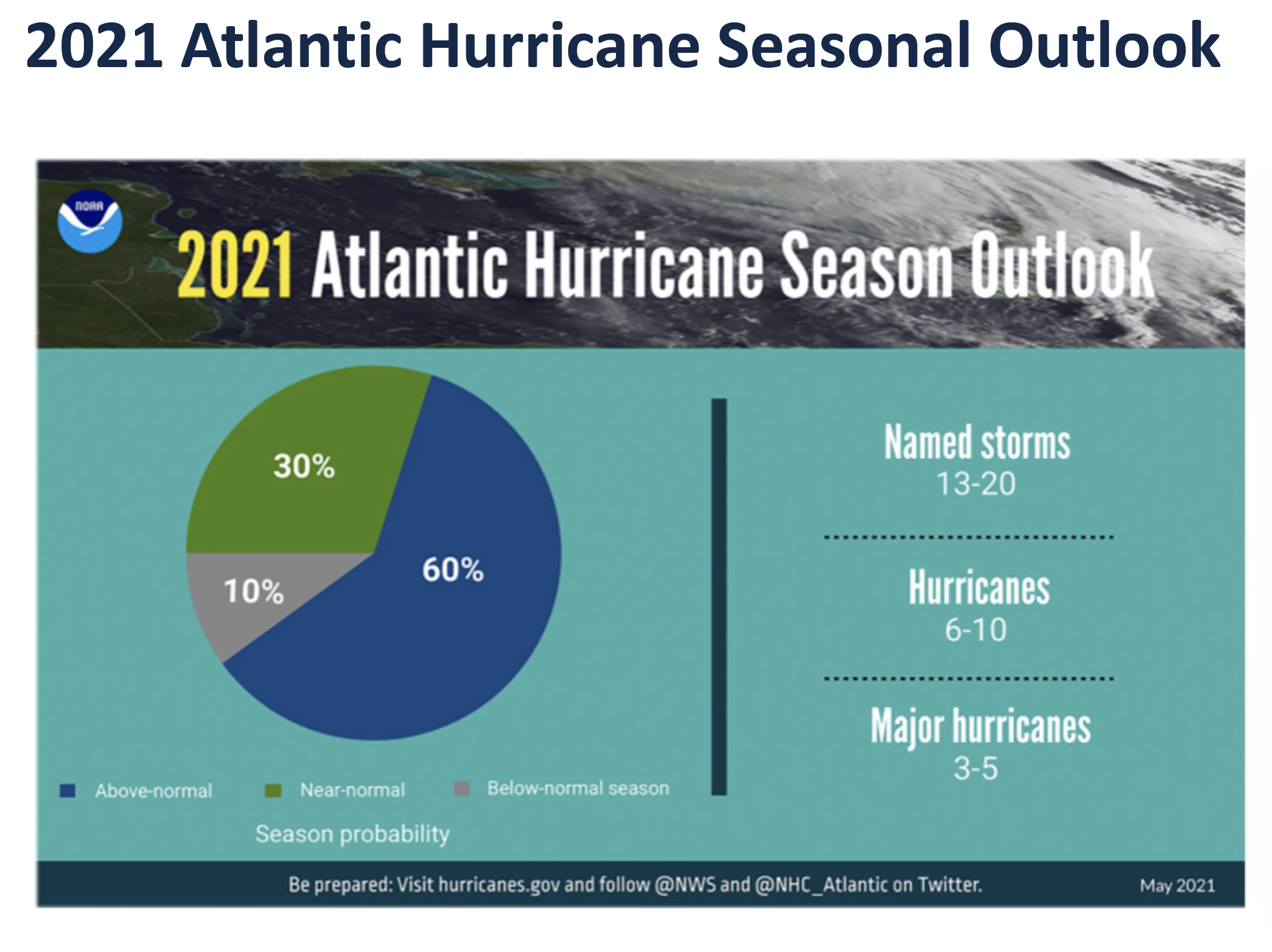The terrible necessity of hurricanes
As a meteorologist and emergency management planner, Dawn Wedig educates others about hurricanes — from why we need them to why we need to prepare for them.

Over the weekend, the National Hurricane Center issued a tropical storm warning for parts of North Carolina concerning Tropical Storm Claudette, the third named storm of this year’s hurricane season.
Hurricanes are a fact of life in North Carolina. Because of where the state is situated geographically — especially the way the Outer Banks jut into the Atlantic Ocean — North Carolina is the third most hurricane-prone state, according to the National Oceanic and Atmospheric Administration.
But terrible as they are, these destructive storms also serve a vital role as nature’s thermostat.
“Hurricanes exist to transfer heat from the tropics to the poles, which regulates Earth’s temperature,” explained Dawn Wedig, a meteorologist who became the University’s first emergency management planner in July 2020. “Hurricanes are an unfortunate part of life in North Carolina. However, without them, unequal heating would cause prolonged droughts, flooding, heat waves and cold spells in the mid-latitudes, which would affect our delicate plant and animal ecosystem. Hurricanes also serve an integral part of the Earth’s water cycle.”
Storms have fascinated Wedig since she was a child growing up in Florida — the state NOAA has named the most hurricane-prone. In her hometown of Daytona Beach, “I remember as a small child, I’d sit on the porch and watch the thunderstorms roll in off the ocean, and I was just mesmerized,” she recalled. “I’ve always been passionate about weather.”
Communication gap
Wedig followed that passion by getting a bachelor’s degree in atmospheric science from UNC Asheville and a master’s degree in environmental management from UNC Wilmington.
While in Asheville, she co-authored a paper on how the public responds to weather warnings and was surprised at the findings. Only 17% of those surveyed actually received the warning, understood what it meant and responded appropriately.
“That was eye-opening,” she said. “I realized that there was a huge communication breakdown between what we know as scientists and what the general public understands.”
While the study didn’t delve into the details of why people ignored weather warnings, Wedig has some ideas. She has seen people in western states come outside, instead of seeking shelter, as a tornado approached, hoping to take photos of the storms with their cameras and phones. In tornado-prone areas, people told her they had heard the weather warning, but kept cooking out. Even members of her own family get confused about the difference between a “watch” and a “warning,” she said. (A hurricane watch means tropical storm or hurricane conditions are possible within 48 hours; a warning means tropical storm or hurricane conditions are expected within 36 hours.)
“People in areas where there is an abundance of weather warnings, they can get fatigued and forget that the storms can cause real damage,” she said. “We have to find that fine line in communication. We want to make sure we’re not overcommunicating, because then you get that apathy and people begin to ignore you. But we also don’t want to under-communicate when there’s a real threat.”
In Wilmington, Wedig decided her career path would be one that bridged that communication gap. As a graduate student, she worked with the university’s emergency manager to analyze and revise its hurricane plan and response procedures. After graduate school, Wedig worked with North Carolina Emergency Management, state government’s lead agency for preparing for and responding to disasters. She was an emergency planner there when Hurricane Florence hit the state in September 2018.
“The state of North Carolina is on the forefront of having meteorologists embedded in their emergency management program,” Wedig said.

Dawn Wedig includes the NOAA seasonal outlook in her hurricane workshop presentations.
Planning for hazards
When she saw the job opening at the University, Wedig was excited about the opportunity to work in emergency management in a higher education setting, like she had at UNC Wilmington.
At Carolina, Wedig is responsible for planning the University’s response for all kinds of hazards, including civil unrest, hazardous material spills and, yes, pandemics. But with her expertise — and since hurricane season has already begun — she is currently focused on “building a natural hazards program from the ground up.”
She has conducted hurricane workshops for stakeholders, taking a more educational approach. “For me, it’s about broadening a knowledge base about these storms.”
So she talks about how excess greenhouse gases have made the tropics warmer and nature uses hurricanes to even out the Earth’s temperature. This year, weak upper-level winds and an enhanced African monsoon season have made it likely that the United States will have an above average chance of hurricane activity. NOAA predicts that we will have 13 to 20 named storms this year, six to 10 hurricanes and three to five major hurricanes.
Wedig cautions her audiences about hurricane misconceptions. “We tend to hyperfocus on the windspeed. When Hurricane Florence hit cooler waters next to shore, it diminished in strength. When it made landfall in Wrightsville Beach, it dumped over 30 inches of water in the Wilmington area because the storm remained stationary for several days.”
In addition to the University’s planned response, Wedig encourages individuals to have their own plan for the storm season. Personally, she has a “go-bag” for work that includes extra clothes, water bottles, a blanket, medication and a flashlight that she can grab in case of emergency. Since April, she has also been adding nonperishable food, containers of water, batteries, paper towels and other supplies regularly to a storage shelf in her garage. She urges employees to do the same, so they won’t be running to stores for supplies in the midst of the emergency.
“It’s so important to make a plan,” she said. And when the storm is on the way, “Listen to what the National Weather Service and your local Emergency Management officials are telling you. And take action.”




